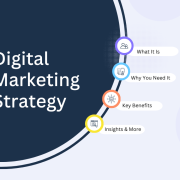6 Business Growth Tips from Richard Branson
I recently read an Entrepreneur Magazine’s online article written for small business owners by entrepreneur extraordinaire Richard Branson. Sometimes business advice is so plentiful it’s hard to know what to focus on for business growth. I like having a few key tips to narrow the path a bit, don’t you?
With guidelines such as these, even if you only successfully apply one out of six, you win. Branson himself seems to have had so many diverse entrepreneurial directions, I figure he must know a few things about focusing your business growth efforts.
Richard Branson, as you know, is the founder of the Virgin Group and companies such as Virgin Atlantic, Virgin America, Virgin Mobile and Virgin Active. He is the author of “Business Stripped Bare: Adventures of a Global Entrepreneur.”
I like what he shares here and thought you’d like an excerpt:
Recently I hosted a conference with a number of fast-growing U.K. companies. One of the speakers was Richard Reed, a founder of Innocent, the British maker of smoothies and soft drinks. Richard founded the business with two friends, Adam Balon and Jon Wright, in 1998. Since then the business has grown to 200 million pounds (about $315 million) in annual sales, and Coca-Cola has come in as a majority shareholder. Still, the founders have managed to retain that spirit of innovation and fun that marked their beginning.
It’s fascinating how they managed to keep their magic formula after the big investment. I’ll try to summarize what they did because I believe there are many lessons in their experience for entrepreneurs around the world.
First, know your mission. At Virgin this was often about shaking up the established markets and providing something of great value and service. In Innocent’s case it was about creating great juices to help people lead healthier lives – and doing this in a fun way.
Second, make sure you get the basic structure right. Know what you are going to do. Many times partners can provide the back office, the infrastructure or the raw materials. By building strong relationships with such suppliers, you are free to scale the operations without heavy calls on your capital.
Third, get the right team at the top. It’s hard to get this right first time. Many small businesses fail to grow because they don’t identify team members who can no longer keep up. It’s sometimes necessary to part company with senior managers who cannot develop the businesses, painful as that may be.
Fourth, a strong purpose and a sense of ethics give the company a solid foundation. In Innocent’s case the focus was on leaving the planet a little better than they found it. This simple but effective message resonates with both staff and customers, whether they number 10 or 500 people.
Fifth, no matter how big you are, details count. Just as I remain obsessive about traveling on our planes and visiting our businesses with my notebooks to chat with staff and check the little touches that make our experience unique, Richard Reed and his partners do the same. They regularly check everything from the lids on their bottles – which ask customers to “enjoy by” and not “use by” a certain date – to the carpets in their offices, which are a distinctive Astroturf.
Finally, listen to your customers and act on what you hear. I’ve always asked our staff for their views and now I track our social media channels to see how our business and brand are doing. Innocent makes a virtue of asking their customers for their views. They use the feedback to inform growth and keep them connected.
I couldn’t agree more. I love the simplicity. Of course, implementing any one of these six tips for business growth is anything but simple. In the work I do with some pretty smart business owners, things always get messier than expected.
My suggestion is to turn these six tips into six questions: how well are you and your staff acting on each of these six areas of focus? Would you like to have that conversation? Feel free to call me.









